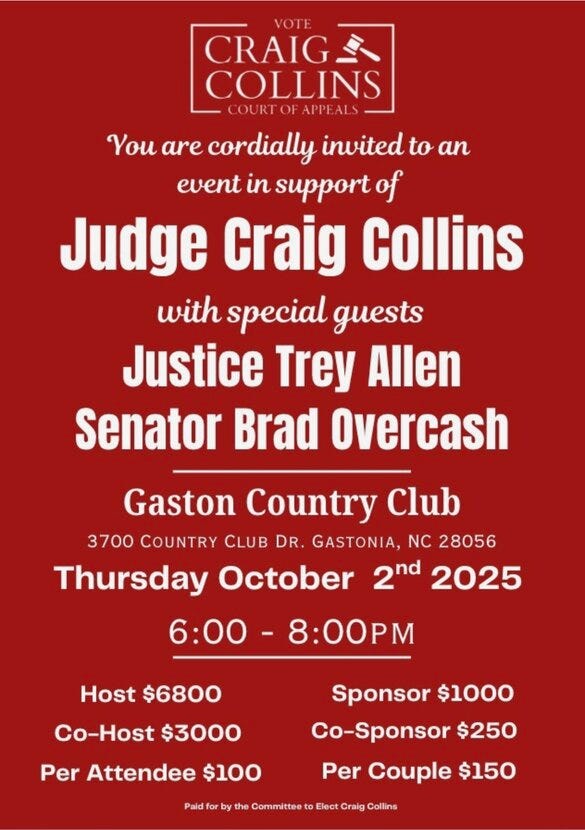The strange rulebook of NC’s judicial campaigns
We elect judges in high-stakes contests, then bind them with ethics rules that punish candor and reward paperwork.
I’ve been writing a lot about judicial elections lately, and I just came across something that made me realize how strange the rules really are.
On its face, it looks simple: A fundraiser for Court of Appeals candidate Judge Craig Collins, headlined by N.C. Supreme Court Justice Trey Allen. Perfectly normal, right?
Well, yes and no. The rules for political activity by sitting judges are pretty confusing, and hinge on whether a judge is an active candidate or not.
To be honest, they don’t really make sense in today’s political environment. On the one hand, judges run in partisan, statewide races—with big money flowing in on the Democratic side. On the other hand, judges have to live under a rigorous Code of Judicial Conduct that limits their political activity.
What are the rules?
According to the most recent N.C. Code of Judicial Conduct, adopted in February 2020, it is perfectly OK for judges to attend political events. They can:
Be in the room. Attend, speak, and be listed on the invite…

